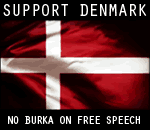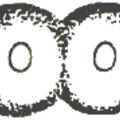Azt tudtátok, hogy két olyan ország még nem háborúzott egymással, ahol mindkettőben volt McDonalds? (tézis ellenőrizve a Falklandi háborúra)
És azt tudtátok, hogy attól, hogy valahol van McDonalds, nem kötelező ott enni?
choose junkfood and nato lokátor
2006.11.25. 12:39 schultze
7 komment
Címkék: intro mcdonalds
A bejegyzés trackback címe:
https://inglobwetrust.blog.hu/api/trackback/id/tr4718996
Kommentek:
A hozzászólások a vonatkozó jogszabályok értelmében felhasználói tartalomnak minősülnek, értük a szolgáltatás technikai üzemeltetője semmilyen felelősséget nem vállal, azokat nem ellenőrzi. Kifogás esetén forduljon a blog szerkesztőjéhez. Részletek a Felhasználási feltételekben és az adatvédelmi tájékoztatóban.
Ádám 2006.12.07. 18:12:38
Talán mert a McDonald's csak olyan országba telepedett le, ami biztosan nem keverdik háborúba, ésm ha mégis, gyorsan elmennek onnan.
schultze · http://inglobwetrust.blog.hu 2006.12.09. 03:27:48
És honnan tudja, hogy nem keverednek háborúba? Onnan, hogy ott a globális tőke. Akinek olyanja van, és nem akarja, hogy eliszkoljon a befekteto, az nem keveredik háborúba.
libike 2007.02.11. 20:18:44
[[de én nem is szeretem a döncit, de mindentől függetlenül, amit írtok az tényleg szar, perszen me kötelező ott enni, de olyan jó, de szar:):) ]]
egyébként olyanokra ellenőriztétek, mint mondjuk Venezuela, Peru, Bolívia, mittuomén, Pakisztán, India, nem t'om
egyébként olyanokra ellenőriztétek, mint mondjuk Venezuela, Peru, Bolívia, mittuomén, Pakisztán, India, nem t'om
schultze · http://inglobwetrust.blog.hu 2007.02.12. 14:09:28
libi neked van igazad:
persze ettől még az elmélet szép és sok igazság van benne.
Golden Arches Theory of Conflict Prevention
In Thomas L. Friedman's 1999 book The Lexus and the Olive Tree the following theory was presented: "No two countries that both had McDonald's had fought a war against each other since each got its McDonald's". While that statement was somewhat tongue-in-cheek, his point was that due to globalization, countries that have made strong economic ties with one another have too much to lose to ever go to war with one another. While the observation may be true, the conclusions to be drawn are unclear. The global expansion of McDonald's restaurants is a relatively recent phenomenon when put into the context of the history of warfare, and, with a few notable exceptions, has proceeded into relatively stable markets.
The veracity of the observation itself depends upon a flexible interpretation of the term "war". Some conflicts that provide possible counterexamples include the 1989 United States invasion of Panama, the bombing of Serbia by NATO forces in 1999, and the ongoing skirmishes between factions of India and Pakistan over the Kashmir region. Furthermore, it could be argued that conflict between separatist groups that aspire to nationhood amounts to a type of warfare against what they consider to be foreign governments, thereby pitting the Basque region against the nation of Spain, for example. Additionally, the erstwhile practice of giving Declarations of War at the commencement of a conflict is not generally observed anymore; for example, the USA has never declared war upon another country since the end of World War II, but unquestionably has fought several war-sized police actions since then. The appearance of McDonald's does not end an existing state of war: the states of Lebanon and Israel have been under a state of war since 1973, with South Lebanon occupied until May 2000 and a significant flareup in 2006, which did not hinder the establishment of McDonald's franchises in Israel and Lebanon in 1993 and 1998, respectively.
See also: Golden Arches
persze ettől még az elmélet szép és sok igazság van benne.
Golden Arches Theory of Conflict Prevention
In Thomas L. Friedman's 1999 book The Lexus and the Olive Tree the following theory was presented: "No two countries that both had McDonald's had fought a war against each other since each got its McDonald's". While that statement was somewhat tongue-in-cheek, his point was that due to globalization, countries that have made strong economic ties with one another have too much to lose to ever go to war with one another. While the observation may be true, the conclusions to be drawn are unclear. The global expansion of McDonald's restaurants is a relatively recent phenomenon when put into the context of the history of warfare, and, with a few notable exceptions, has proceeded into relatively stable markets.
The veracity of the observation itself depends upon a flexible interpretation of the term "war". Some conflicts that provide possible counterexamples include the 1989 United States invasion of Panama, the bombing of Serbia by NATO forces in 1999, and the ongoing skirmishes between factions of India and Pakistan over the Kashmir region. Furthermore, it could be argued that conflict between separatist groups that aspire to nationhood amounts to a type of warfare against what they consider to be foreign governments, thereby pitting the Basque region against the nation of Spain, for example. Additionally, the erstwhile practice of giving Declarations of War at the commencement of a conflict is not generally observed anymore; for example, the USA has never declared war upon another country since the end of World War II, but unquestionably has fought several war-sized police actions since then. The appearance of McDonald's does not end an existing state of war: the states of Lebanon and Israel have been under a state of war since 1973, with South Lebanon occupied until May 2000 and a significant flareup in 2006, which did not hinder the establishment of McDonald's franchises in Israel and Lebanon in 1993 and 1998, respectively.
See also: Golden Arches
FoLib · http://friendofliberty.freeblog.hu 2007.02.21. 23:35:16
Muhaha!!!
:-S 2007.05.02. 23:53:52
1, Ezt a szép képet azért árnyalja némileg, ha a McDonalds-al rendelkező országok támadnak meg McDonalds-al nem rendelkezőket azért, hogy ott is lehessen Big Mac :-P
2, Na meg persze Pakisztáén és India közt sem volt háború, amíg egy angol gyarmat voltak. Lehet, Gandhiék tényleg elkúrták ezt a dolgot... De minimum kétoldalú a probléma :-)
3, Azért kérdéses az is, hogy a jövőben mennyire lesz erős ez a szabály. Kicsiben, Jugoszlávia azért aránylag szépen integrált állam lehetett ahhoz képest, hogy milyen fiatal volt, és igen valószínű, hogy sok szerbnek volt valamije horvát területen, és fordítva - aztán hogy végezték...
2, Na meg persze Pakisztáén és India közt sem volt háború, amíg egy angol gyarmat voltak. Lehet, Gandhiék tényleg elkúrták ezt a dolgot... De minimum kétoldalú a probléma :-)
3, Azért kérdéses az is, hogy a jövőben mennyire lesz erős ez a szabály. Kicsiben, Jugoszlávia azért aránylag szépen integrált állam lehetett ahhoz képest, hogy milyen fiatal volt, és igen valószínű, hogy sok szerbnek volt valamije horvát területen, és fordítva - aztán hogy végezték...
:-S 2007.05.02. 23:54:44
Helyesírás :-(



